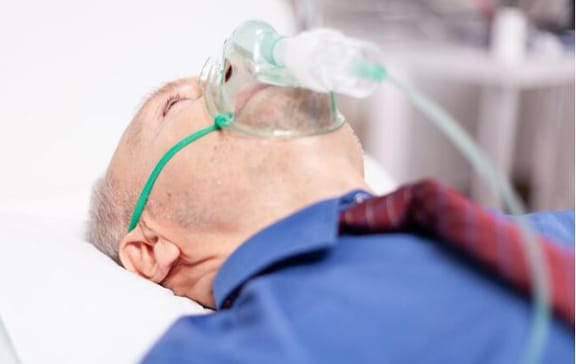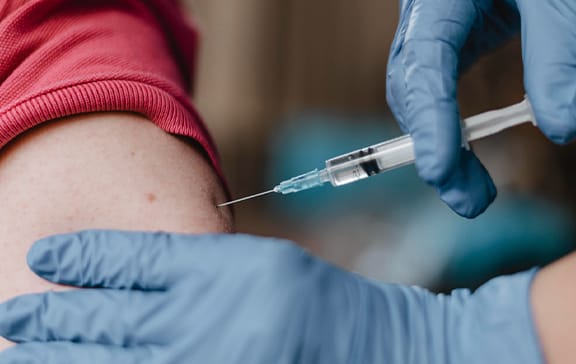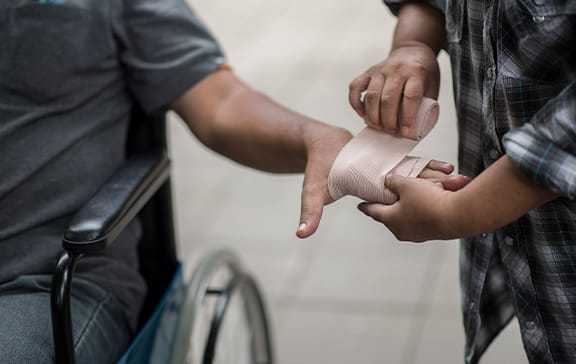
- Each Participant requiring complex bowel care receives appropriate support relevant (proportionate) to their individual needs.
- Each participant is involved in the assessment and development of the plan for their complex bowel care management. With their consent, the participant’s health status is subject to regular and timely review by an appropriately qualified health practitioner. The plan identifies how risks, incidents and emergencies will be managed, including required actions and escalation to ensure participant wellbeing.
- Appropriate policies and procedures are in place, including a training plan for workers, which relate to the support provided to each participant receiving complex bowel care.
- All workers working with a participant requiring complex bowel care have received training, relating specifically to each participant’s needs, type of complex bowel care and high intensity support skills descriptor for providing complex bowel care, delivered by an appropriately qualified health practitioner or person that meets the high intensity support skills descriptor for complex bowel care.
- We will not commence any of the high intensity daily personal activities, until they have sufficiently trained and qualified staff and sufficient resources to be able to meet the participants needs.
- As a registered nurse with acute care, community, and nursing experience they meet the requirements for complex bowel care. They will always work within their nursing scope of practice and decision-making framework when delegating any roles to other nurse or support workers.
- With any medications related to complex bowel the GP will be consulted for medication management. Any aids for complex bowel management, such as colostomy, the continence supplier or specialist will also be consulted.
- Any supports the participants dignity and privacy will be respected. Acknowledge of aperients and side effects of medications that can contribute to constipation. Acknowledge on the risk and complications related to autonomic dysreflexia.
- The staff will be trained in the risks related to complex bowel care and workers also have access to timely supervision, support, equipment, and consumables required to provide complex bowel care.
- The complex bowel care plan will be developed individually for each participant and will identify how risks, incidents and emergencies will be managed, including required actions and escalation to ensure participant wellbeing.
- At 2 step, each participant will have a risk plan and an emergency management plan that identifies the risk to the individual participant related to their complex needs. The workers will need to contact 000 for ambulance services in an emergency. For non-urgent situations, with the participant’s consent, they will be referred to the continence specialist, continence nurse or GP for further health reviews.

- Each participant requiring enteral feeding and management receives appropriate nutrition, fluids, and medication, relevant and proportionate to their individual needs.
- Each participant is involved in the assessment and development of the plan for their enteral feeding and management. With their consent, the participant’s health status is subject to regular and timely review by an appropriately qualified health practitioner. The plan identifies how risks, incidents and emergencies will be managed, including required actions and escalation to ensure participant wellbeing.
- Appropriate policies and procedures are in place, including a training plan for workers, which relate to the support provided to each participant who has enteral feeding needs.
- All workers working with a participant who requires enteral feeding have completed training, relating specifically to each participant’s needs, type and method of enteral feeding and regime, and high intensity support skills descriptor for enteral feeding, NDIS Quality and Safeguards Commission delivered by an appropriately qualified health practitioner or person that meets the high intensity support skills descriptor for enteral feeding.

- Each participant requiring severe dysphagia management receives appropriate support that is relevant and proportionate to their individual needs and preferences.
- Providers identify each participant requiring severe dysphagia management. With their consent, their individual severe dysphagia management needs are assessed by appropriately qualified health practitioners, including by practitioners conducting regular and timely reviews if needs change or difficulty is observed.
- Each participant requiring severe dysphagia management is involved in the assessment and development of their severe dysphagia management plan. The plan identifies: (a) their individual needs and preferences (such as for food, fluids, preparation techniques and feeding equipment); and (b) how risks, incidents and emergencies will be managed to ensure their wellbeing and safety, including by setting out any required actions and plans for escalation.
- Appropriate policies and procedures are in place in relation to the support provided to each participant requiring severe dysphagia management, including training plans for workers supporting them.
- Each worker responsible for providing severe dysphagia management to participants has received training, relating specifically to each participant’s needs, managing any severe dysphagia related incident and the high intensity support skills descriptor for severe dysphagia management, delivered by an appropriately qualified health practitioner with expertise in severe dysphagia management

- Each participant with a tracheostomy receives appropriate suctioning and management of their tracheostomy relevant and proportionate to their individual needs.
- Each participant is involved in the assessment and development of the plan for their tracheostomy suctioning and management. With their consent, the participant’s health status is subject to regular and timely review by an appropriately qualified health practitioner. The plan identifies how risks, incidents and emergencies will be managed, including required actions and escalation to ensure participant wellbeing.
- Appropriate policies and procedures are in place, including a training plan for workers, which relate to the support provided to each participant with a tracheostomy.
- All workers have completed training, relating specifically to each participant’s needs, managing any tracheostomy related incident and high intensity support skills descriptor for providing tracheostomy care (without ventilation) and supporting a person dependent on ventilation, delivered by an appropriately qualified health practitioner or person that meets the high intensity support skills descriptor for tracheostomy suctioning and management.

- Each participant with a catheter receives appropriate catheter management relevant and proportionate to their individual needs.
- Each participant is involved in the assessment and development of the plan for management of their catheter. With their consent, the participant’s health status is subject to regular and timely review by an appropriately qualified health practitioner. The plan identifies how risks, incidents and emergencies will be managed, including required actions and escalation to ensure participant wellbeing.
- Appropriate policies and procedures are in place, including a training plan for workers, which relate to the support provided to each participant with a catheter.
- All workers have completed training, relating specifically to each participant’s needs, type of catheter and high intensity support skills descriptor for catheter changing and management, delivered by an appropriately qualified health practitioner or a person NDIS Quality and Safeguards Commission that meets the high intensity support skills descriptor for urinary catheter changing and management.

- Each participant requiring subcutaneous injections receives appropriate support relevant and proportionate to their individual needs and specific subcutaneous injections and medication administered.
- Each participant is involved in the assessment and development of the plan for their subcutaneous injections which includes dosage measurement and calculation. With their consent, each participant’s health status is subject to regular and timely review by an appropriately qualified health practitioner. The plan identifies how risks, incidents and emergencies will be managed, including required actions and escalation to ensure participant wellbeing.
- There are documented written or phone orders by the health practitioner prescribing the medication that trained workers may administer by subcutaneous injection.
- Appropriate policies and procedures are in place, including a training plan for workers, which relate to the support provided to participants requiring subcutaneous injections and related medication. 2
- All workers have completed training, relating specifically to the participant’s injection and medication needs and high intensity support skills descriptor for subcutaneous injections, delivered by an appropriately qualified health practitioner or person that meets the high intensity support skills descriptor for subcutaneous injections. Workers must also have a basic understanding of the participant’s related health condition.

- Each participant requiring complex wound management receives appropriate support relevant and proportionate to their individual needs.
- Each participant is involved in the assessment and development of the plan for their complex wound management. With their consent, the participant’s health status is subject to regular and timely review by an appropriately qualified health practitioner. The plan identifies how risks, incidents and emergencies will be managed, including required actions and escalation to ensure participant wellbeing.
- Appropriate policies and procedures are in place, including a training plan for workers, which relate to the support provided to each participant requiring complex wound management.
- All workers working with a participant requiring complex wound management have received training, relating specifically to the participant’s needs that are affected by their wound management regime (for example, showering, toileting and mobility) and high intensity support skills descriptor for providing complex wound management, delivered by an appropriately qualified health practitioner or person that meets the high intensity support skills descriptor for complex wound management.
